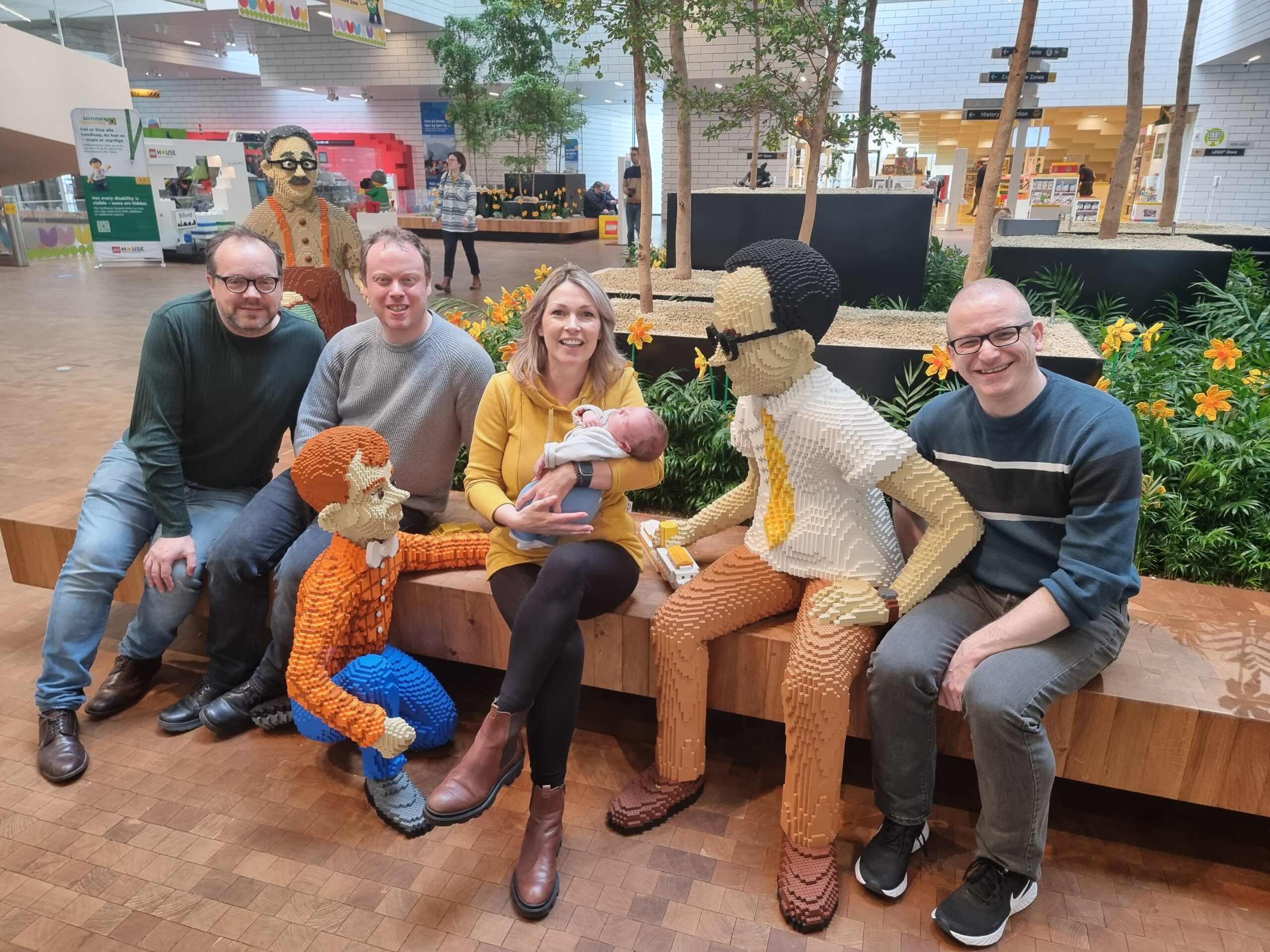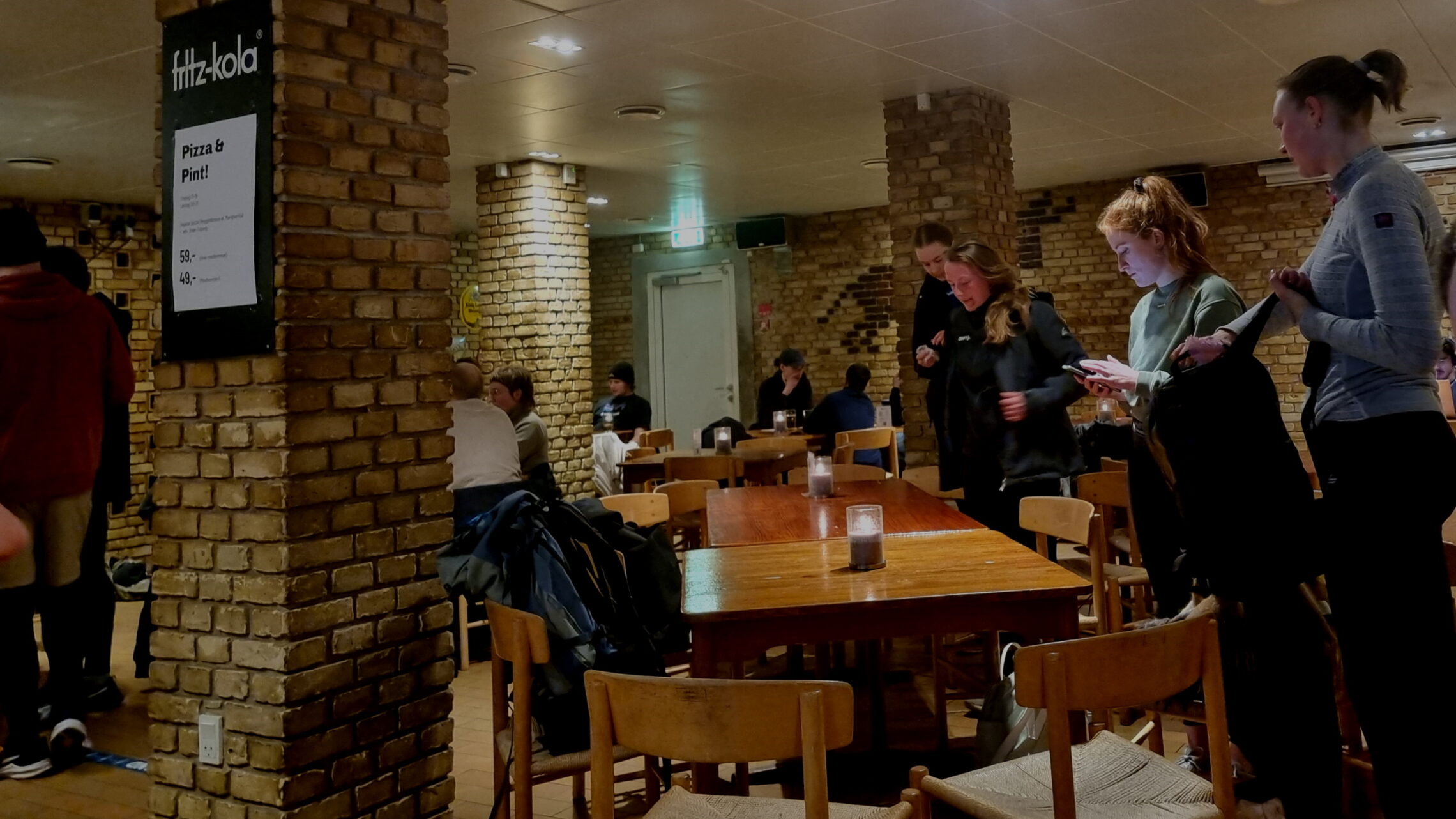“Students were so alone during the pandemic. We need spaces like this to connect up with eachother again. That’s how we learn.”
When you enter the basement cafe bar at Aarhus University’s Studenterhus (student house, a kind of students’ union), you’re hit with candles, craft beers and music at a level where you can hear yourself, and crucially others, think. It’s a space that seems deliberately designed by students for students to spend time with each other in – a marked contrast to the unpleasantly bright and soulless (anti-)“social learning spaces” that look more like the airport we flew into, and are somehow coming to dominate UK HE.
For the Danes, it is a text-book embodiment of the Danish term “hygge” (pronounced “hoo-gah”), which translates roughly to “cosiness”, but means much more than that in a student context.

For the volunteer students running the facility, the food and drink are secondary to the conversations and connections made in the space. Here hygge becomes a deeply important component of student life, because of the way in which community, belonging and spending time with others contributes to the student learning experience. “We couldn’t be students at Aarhus without it”, said our new friend Rune behind the bar.
Are we jelling though
It was one of many spaces like it that we saw and discovered on Day -1 of the Wonkhe SUs study tour around Scandinavia. Right now there’s around 40 students’ union officers and staff from across the UK making their way to Copenhagen to foster links with and learn from others representing and serving students – and while the trip doesn’t officially start until later, a small group of us is already exhausted from our pre-visit to Bilund, Jelling and Aarhus.
When we arrived in Billund our first stop was to catch up with Gemma Tumelty, who was the first NUS president from a post-1992 university back in 2006-8, and is now an initiatives lead with the Lego Foundation – promoting play in education to empower children to become creative, engaged, lifelong learners. Taking her love of experiential learning from her time as a students’ union officer and fusing it with her skills in public affairs and change management, Gemma is now working with governments and NGOs to improve educational outcomes around the world.

That was interesting, but more interesting to us was the Stepford level of cleanliness and neatness we encountered in Billund – a town (and airport) that Lego appears to have created in a similar way to the £200 sets we saw in the shop. Gemma’s theory that the culture of cooperation and mutual trust embodied both in Danish traditions and reinforced practices in places like Billund helped explain why, having finished work at 3pm, most citizens went out litter picking. Why don’t UK university campuses feel like this?
They let the business studies students run the cafe?
Having encountered the Vikings of Jelling, our first stop in Aarhus was the Studenterlauget – the students’ union for the 4,000 student strong business school of the university. With 300 student employees and an annual turnover of approximately 18 million DKK, it claims the title as the biggest student organisation in Denmark – and as well as running the usual facilities, clubs and welcome weeks, it operates a series of fascinating projects designed to hone students’ skills.
The main cafe is run by students – they are business studies students after all – and students build a portfolio of experiences and skills as a result. Den Gyldne Fugl is an awards night that manages to merge accolades for students and teachers, embodying a spirit of partnership we’ve not seen in the UK. Its buddy programme is specifically designed to ensure that international students build “bridging” social capital with Danes, deliberately attempting to intervene in that tendency we see in the UK for international students to be housed with and only socialise with others from their country.

And the Aarhus Case Competition is the biggest “business case” competition in the Nordic countries – where 650+ student participants, work together on business problems for corporate and SME partners from the city and region. It’s a great example of student led, high-profile employability work that gets beyond seminars and interview prep and into exposure with real companies and problems.
Commuters in charge
Downtown back at the Studenterhus, we were surprised to find a tunnel between the VC’s office and the SU – but even more surprised to find a civic tie-up that appeared to solve the conundrum of connections between commuter students and those away from home. Funding from the city and university helps support Kulturkammerater, where the locals are supported to buddy up with those from the outside of the city to explore a cultural site or a leisure activity in Aarhus.
It’s a neat twist on the usual efforts to integrate commuter students we see in the UK – where it’s local pride and exploring the area that allows the commuters to be the ones setting the university norms for a change.



















